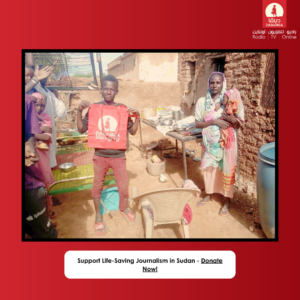Sudanese social media activist harassed in Egypt
A Sudanese activist living in Cairo has been harassed by the Egyptian security service in an attempt to make him stop his writings on social media that are considered hostile to the government of President Omar Al Bashir.
 Dahia Sarir Tuto, a Sudanese man living in Cairo (photo from Facebook)
Dahia Sarir Tuto, a Sudanese man living in Cairo (photo from Facebook)
A Sudanese activist living in Cairo has been harassed by the Egyptian security service in an attempt to make him stop his writings on social media that are considered hostile to the government of President Omar Al Bashir.
The Sudan People’s Liberation Movement-North faction that is led by Malik Agar (SPLM-N Agar) released a statement on Thursday about the situation of Dahia Sarir Tutu. “At the request of the Sudanese government, the Egyptian authorities summoned Dahia Sarir Tutu and asked him to refrain from writing against the Sudanese regime, and warned him of the consequences if he does ensue,” spokesman Mubarak Ardol said.
Tutu is from the Nuba Mountains in Kordofan, where armed conflict broke out in June 2011. He is known for regularly writing articles in which he denounces oppression and corruption that takes place in Sudan. Tutu does so on various social media outlets and his personal Facebook page.
On Thursday, he released a short text on his Facebook page, saying that he was subjected to threats and was asked to stop writing negatively about the Sudanese government. Tutu did not identify who threatened him.
“My humanitarian and political situation in Egypt is very dangerous. If any harm happens to me, my children, or […..] anything else, then you should know that the Sudanese government is behind it,” he said.
Collaboration
Last July, the Egyptian authorities banned Sarah Nugdallah, secretary-general of the National Umma Party from entering, against the backdrop of a meeting of the Sudan Call opposition alliance which she planned to attend.
Egypt and Sudan have recently agreed to cooperate on issues of security the two countries share, after several years of suspicion following a coup d’etat in July 2013 that removed the Islamist President Mohamed Morsi.











 and then
and then